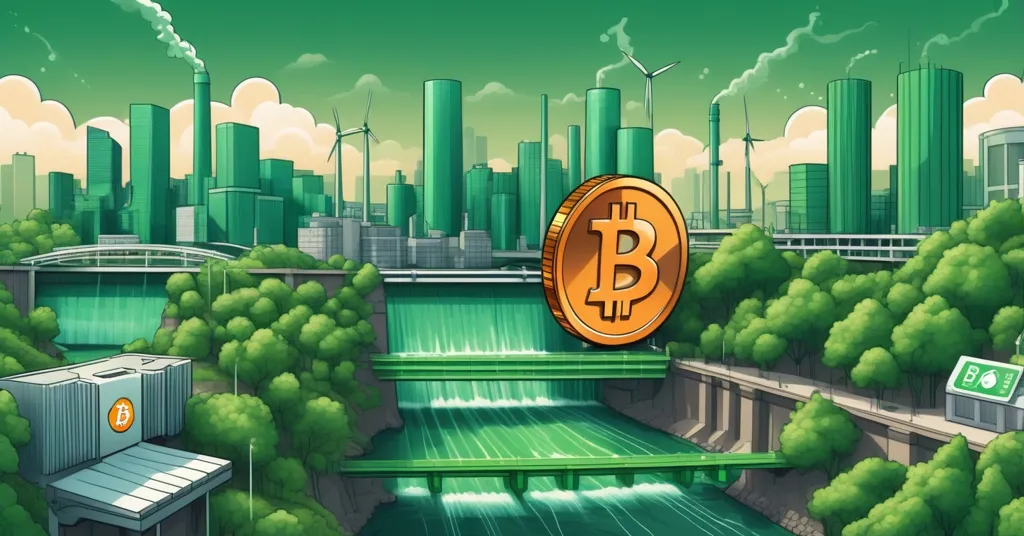Panama City Hints at Bitcoin Reserve, Inspired by El Salvador’s Crypto Move

Panama City Eyes Bitcoin Reserve Following El Salvador’s Lead
Is Panama City set to become the next hub for Bitcoin? Mayor Mayer Mizrachi thinks so, hinting at the establishment of a city-level Bitcoin reserve after discussions with El Salvador’s crypto leaders, Max Keiser and Stacy Herbert.
- Bitcoin Reserve Hint
- Crypto Payments
- Sustainable Mining
- Educational Initiatives
- Legislative Hurdles
Following a meeting with El Salvador’s Bitcoin advisors, Mayor Mizrachi took to social media to hint at a “Bitcoin Reserve” for Panama City. A Bitcoin reserve is essentially a collection of Bitcoin held by a government or city as part of its financial assets. This move comes on the heels of El Salvador’s bold decision to adopt Bitcoin as legal tender and establish a national Bitcoin reserve, now holding 6,179 BTC valued at approximately $550 million. While El Salvador’s journey with Bitcoin has not been without its challenges, including tensions with the International Monetary Fund (IMF), Panama City seems eager to follow suit.
The city is exploring the acceptance of various cryptocurrencies such as Bitcoin, Ethereum, Tether (USDT), and USDC for public payments. This includes everything from city taxes to fees, a move that could significantly enhance transparency and foster crypto adoption. While the city can implement such policies, a federal-level Bitcoin reserve would require approval from Panama’s National Assembly. Critics argue that a city-level Bitcoin reserve might not be enough to significantly impact the economy, given the volatility of cryptocurrencies, but Panama City is undeterred.
Panama City’s vision extends beyond just holding and using Bitcoin. Inspired by El Salvador’s use of geothermal energy, the city is considering sustainable Bitcoin mining powered by its abundant hydroelectric resources—electricity generated from water. This approach not only aligns with global trends towards greener crypto mining but also showcases Panama’s commitment to innovation and sustainability. However, some skeptics question whether this can truly offset the environmental impact of Bitcoin mining.
On the educational front, Panama City plans to adopt El Salvador’s “What is Money?” financial literacy textbook into its online library. This initiative aims to boost financial education, potentially paving the way for broader public understanding and adoption of cryptocurrencies. Yet, there’s a debate on whether such educational efforts can truly bridge the gap in crypto literacy among the general public.
While the future looks promising, it’s not without its hurdles. Panama City might face similar challenges as El Salvador, including regulatory scrutiny and the need to balance economic stability with crypto integration. The city’s success will hinge on its ability to navigate these challenges while maintaining a forward-thinking approach.
Adding to the buzz, Mayor Mizrachi is set to speak at the Bitcoin 2025 Conference in Las Vegas, just 11 days after his hint. This platform could further cement Panama City’s role as a leader in Latin America’s crypto transformation, but it also puts the city under the global spotlight, with expectations high.
As we watch Panama City’s journey unfold, it’s clear that the city is not just dabbling in crypto—it’s aiming to be at the forefront of the digital currency revolution. But as with all revolutions, the path forward will be filled with both opportunities and obstacles. Panama City isn’t just dipping its toes into the crypto pool; it’s ready to dive in headfirst, but not without a life jacket.
Key Takeaways and Questions
- What did Mayor Mayer Mizrachi hint at regarding Panama City’s future with Bitcoin?
Mizrachi hinted at the potential creation of a city-level Bitcoin reserve for Panama City.
- What cryptocurrencies are Panama City considering for public payments?
Panama City is considering Bitcoin, Ethereum, Tether (USDT), and USDC for public payments, including taxes and city fees.
- How does Panama City plan to approach sustainable Bitcoin mining?
Panama City is exploring the use of its hydroelectric power—electricity generated from water—for sustainable Bitcoin mining, inspired by El Salvador’s use of geothermal energy.
- What educational initiative is Panama City adopting from El Salvador?
Panama City plans to integrate El Salvador’s “What is Money?” financial literacy textbook into its online educational library.
- What legislative body would need to approve a federal-level Bitcoin reserve in Panama?
The National Assembly of Panama would need to approve any federal-level Bitcoin reserve.
- What are the potential challenges Panama City might face in implementing a Bitcoin reserve, given El Salvador’s experience?
Panama City might face challenges similar to those faced by El Salvador, such as tensions with international financial institutions like the IMF over its Bitcoin policy, regulatory scrutiny, and the need to balance economic stability with crypto integration.
- What upcoming event is Mayor Mizrachi scheduled to speak at?
Mizrachi is scheduled to speak at the Bitcoin 2025 Conference in Las Vegas.



